Why Switzerland is not the best at recycling waste

Switzerland has one of the highest municipal waste recycling rates in Europe, at least for aluminium and glass. However, most plastic is burned. A new initiative aims to reverse the trend.
Households and small businesses in Switzerland produce about six million tonnes of waste per year. That is 671 kilograms of municipal waste per inhabitant (in 2022), one of the highest rates in the worldExternal link. Just over half of this waste is collected separately and recycled, according to the Federal Office for the Environment (FOEN). At the European level, it is one of the highest recycling rates.
The rest of the waste generated in Switzerland, especially the vast majority of plastics, ends up in incinerators.
Here’s an overview of how Switzerland recycles and where the Alpine country could improve its waste management.
Garbage bag tax promotes recycling
Switzerland has been a pioneer country in municipal waste recycling. The introduction of a garbage bag tax in the 1990s encouraged people to voluntarily recycle eligible items at collection points.
“Selective collection has become a strong social norm,” says Jasmine Voide, head of circular economy projects at the umbrella association Swiss Recycle. The amount of waste collected and separated per capita has doubled in 30 years, she points out.
Today, Switzerland recycles and composts 52% of its municipal waste. Topping the list are Slovenia, Germany and Austria, with shares exceeding 60%. Italy, with a recycling rate of almost 57%, is also above the European average of 46%.
Switzerland recycles 97 out of 100 glass bottles
The recycling rate is even higher when the different materials are considered separately. Eighty percent of paper and cardboard is recycled. The rate rises to 83% for PET plastic beverage bottles, 91% for aluminium packaging and 97% for glass. This means that out of every 100 bottles or other glass containers sold in the country, 97 are recycled.
The recovery of this waste is financed through a “disposal tax” already included in the purchase price. For example, the fee is 1.8 cents for a PET beverage bottle.
This has made it possible to create a closed loop where bottles are collected, separated and re-utilised in Switzerland, says Voide. “We have succeeded from the very beginning in giving a value to PET and aluminium cans, which has not been done elsewhere.”
In Germany, the Netherlands and Scandinavian countries, the deposit system is widespread. Customers pay a surcharge of between 10 and 25 cents when purchasing a plastic water bottle or beer can, which is then refunded to them when they return the empty container.
Waste produces heat and electricity
What about the other half of municipal waste that ends up in the trash? Over 20% of it could be recycled, according to a recent survey by FOEN which analyses the contents of Swiss trash bags every ten years.
In Switzerland, municipal waste thrown in dumpsters never ends up in landfills, which have been banned since 2000. Food scraps, composite materials, packaging and other household waste are burned in waste-to-energy plants. The heat generated during combustion feeds district heating networks or is used to generate electricity.
Most plastic is burned
However, these figures show only part of the full picture. In reality, there is still plenty of room for improvement when it comes to recycling, especially for plastic.
Per-capita plastic consumption in Switzerland is among the highest in the worldExternal link, according to OceanCare, a Swiss-based international organisation that advocates for a global agreement to curb plastic pollution.
Switzerland recycles less than 10% of the 790,000 tonnes of plasticExternal link waste it generates each year from households, agriculture and industry. More than 85% of plastic is burned in waste-to-energy plants along with municipal waste or in cement plants.
That means even more plastic must be produced to meet a growing demand. Plastics manufacturing requires emissions-producing fossil fuel extraction, since plastics are made from oil and methane. Some of the plastic waste also ends up in the environment, polluting lakes and rivers.
>> Read: How do microplastics from tyres affect health and the environment?
“Switzerland ranks last in Europe in terms of measures to combat plastic waste,” says Fabienne McLellan, director of OceanCare. According to a report by the industry association Plastic Europe, Switzerland recycles 28% of its plastic packaging. It’s a much lower share than in Germany, Spain and Norway, which all recycle more than 40%, or the rate of over 30% achieved by Italy, Austria and the United Kingdom.
Why is the plastic recycling rate in Switzerland so low?
Recycling plastic is not easy because not all plastics are the same. For example, polyethylene is used for food films and trays, polystyrene in yogurt tubs, and polypropylene in bottle caps, with everyday items often composed of different plastics. The presence of chemical additives or dyes further complicates recycling.
In Switzerland, plastics are not subject to a disposal tax as is the case with glass or PET bottles (which is a type of plastic that meets international production standards allowing it to be recycled). The law does not require plastics to be recycled, and there is no nationwide take-back system.

The initiative is left to municipalities and the private sector. The Swiss Plastic Recyclers Association, for example, has set up collection points in many municipalities. In 2022 it collected about 9,500 tonnes of food trays, detergent bottles and other plastic waste. About half of that was recycled.
Kunstoff.swiss, the association representing the interests of the Swiss plastics industry, believes the problem is not the collection, but the step after that. Switzerland does not have enough separation and recycling capacity to process everything that is collected, according to Patrick Semadeni, vice president of Kunstoff.swiss. Currently, plants in Germany, Austria and Italy process much of the plastic collected in Switzerland.
That may soon change, however, partly thanks to a motion accepted by both chambers of Swiss parliament calling on the country to recycle more plastic.
A system for collecting plastics nationwide
The RecyPac association, created in late 2023, wants to implement a circular economy for plastics by creating a uniform collection system throughout Switzerland. The goal is to involve the entire supply chain, from the manufacturer responsible for designing easily recyclable plastic packaging that can be easily recycled to the recycling companies. RecyPac has the support of major Swiss retailers and large food manufacturers, including Nestlé and Unilever.
Jasmine Voide believes that a nationally harmonised system and a guarantee of enough plastics to recycle will enable the industry to invest in recycling facilities in Switzerland.
The goal is to increase the quantities collected tenfold and achieve a recycling rate of 55% for plastic packaging and 70% for beverage cartons (tetrapaks) by 2030. Collection is expected to begin this year.
“In the future we will know exactly what happens to plastic,” Voide says.
Edited by Sabrina Weiss/Veronica De Vore

In compliance with the JTI standards
More: SWI swissinfo.ch certified by the Journalism Trust Initiative


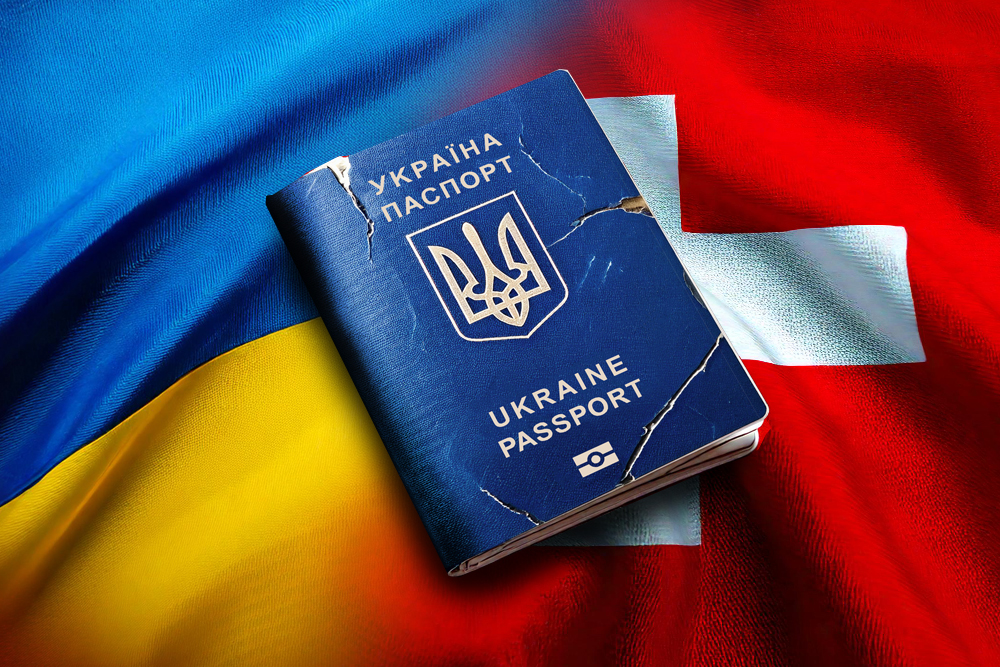
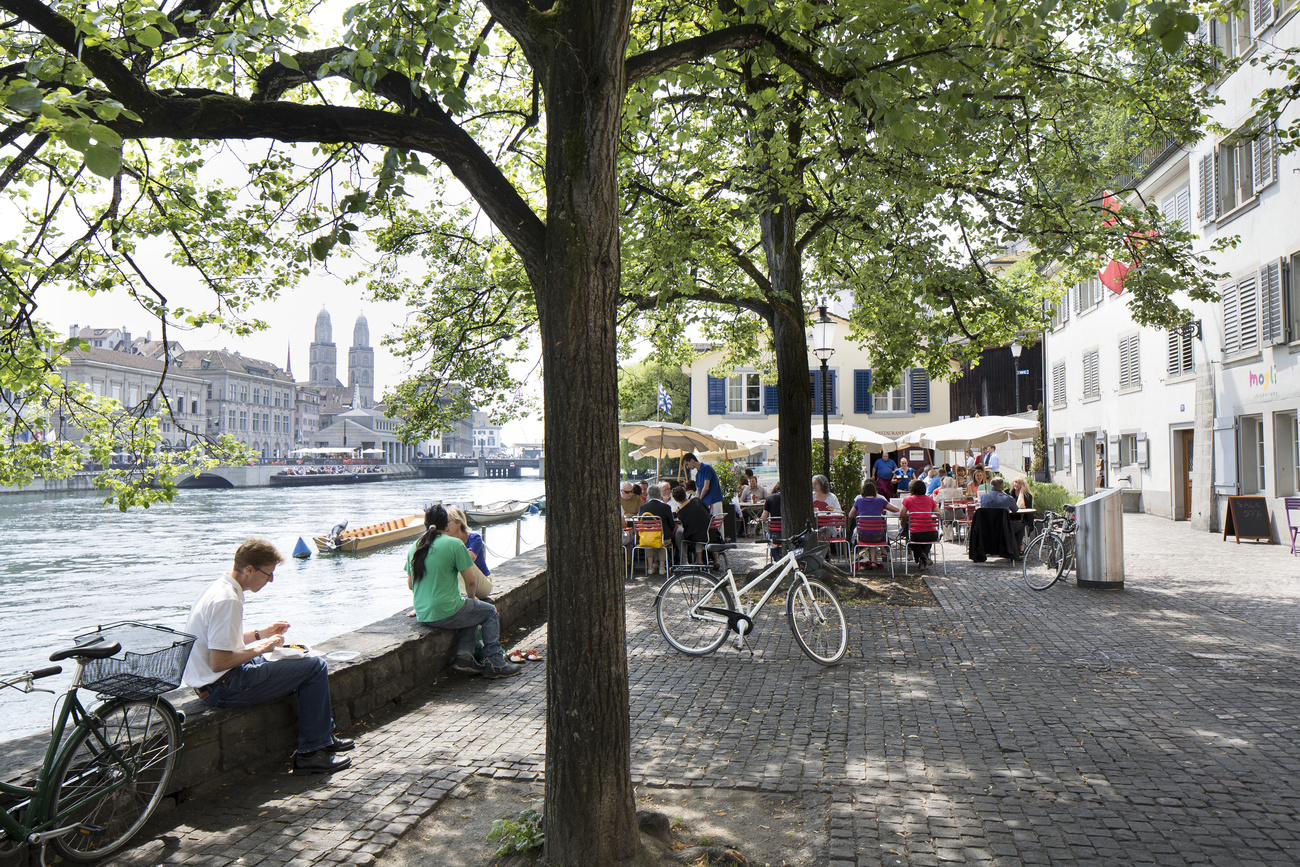







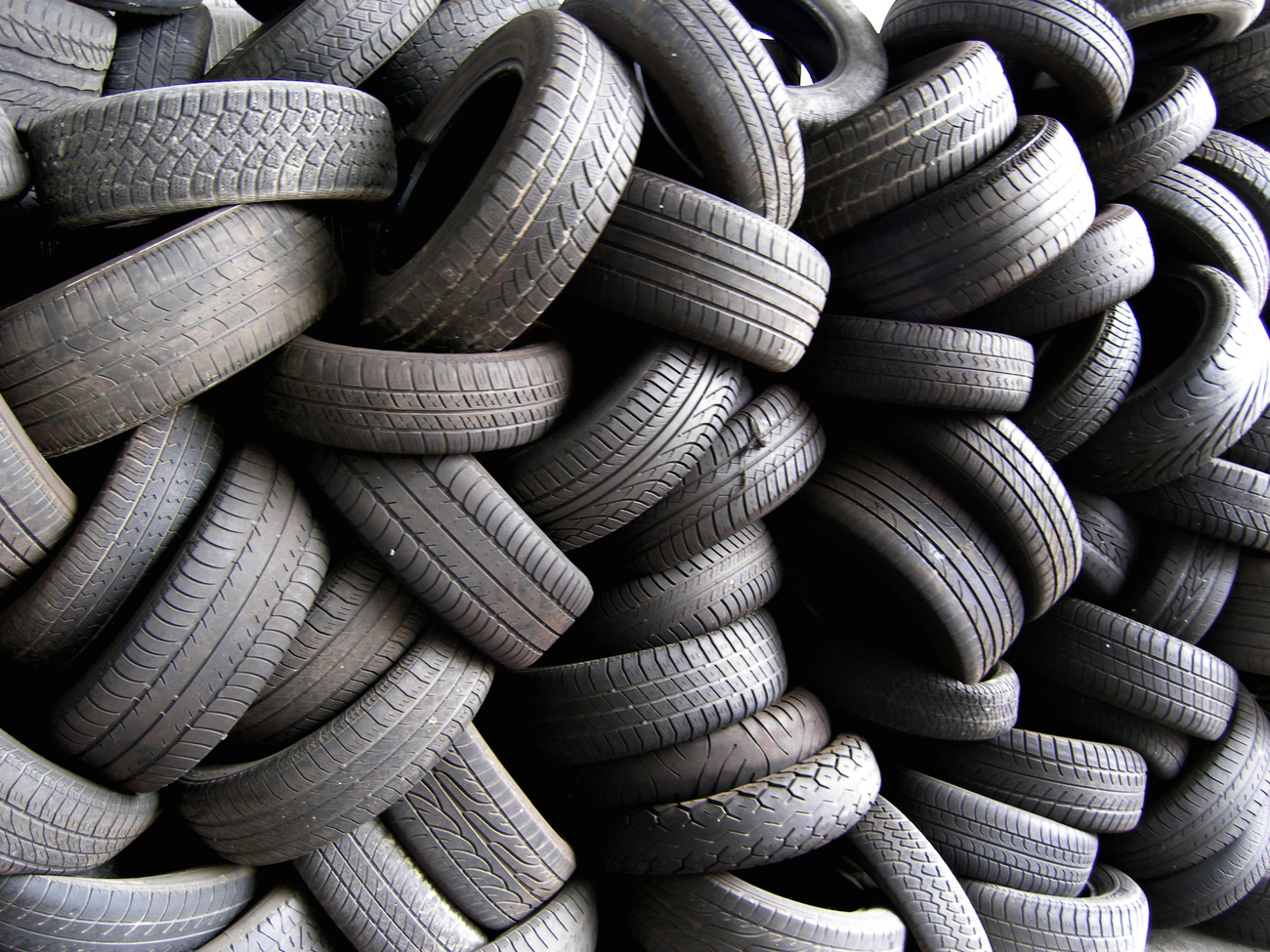
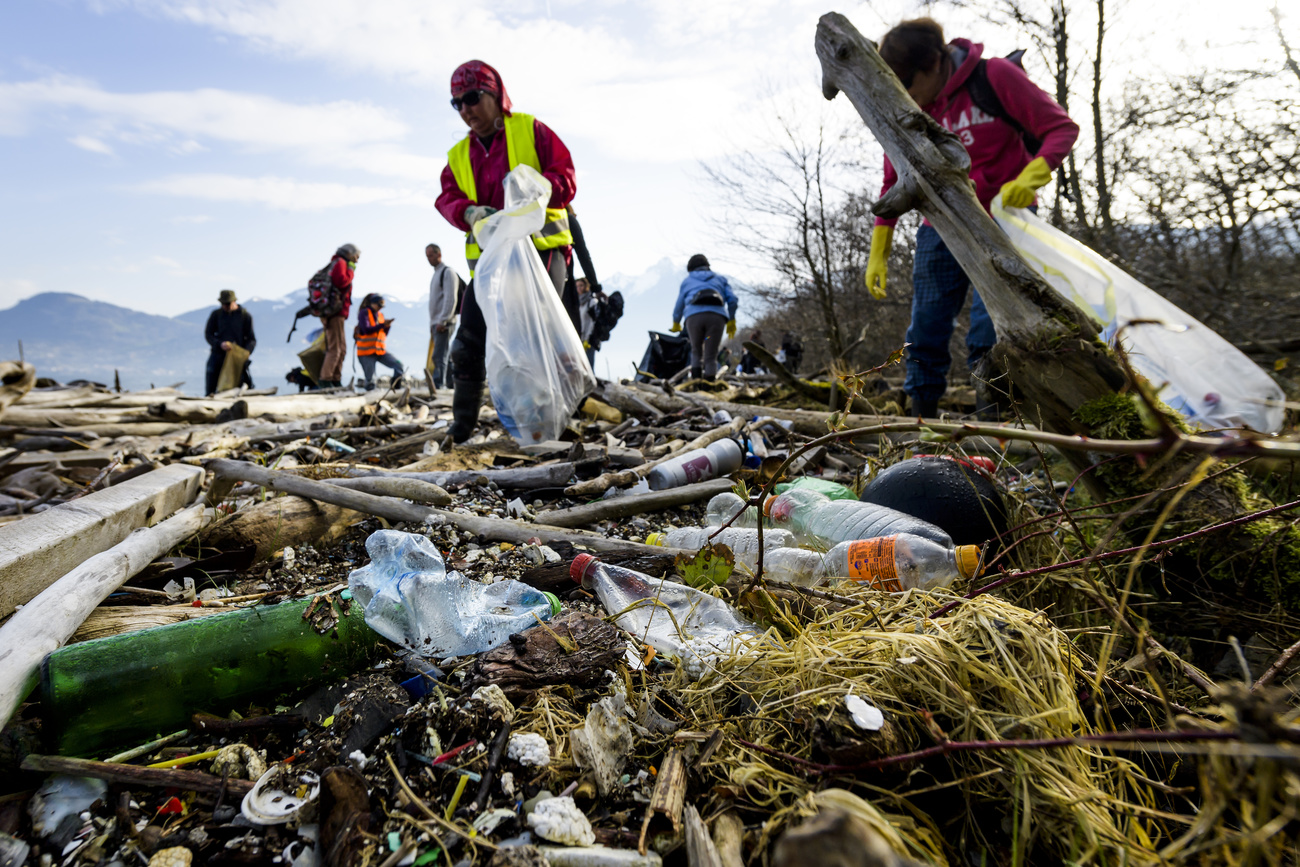
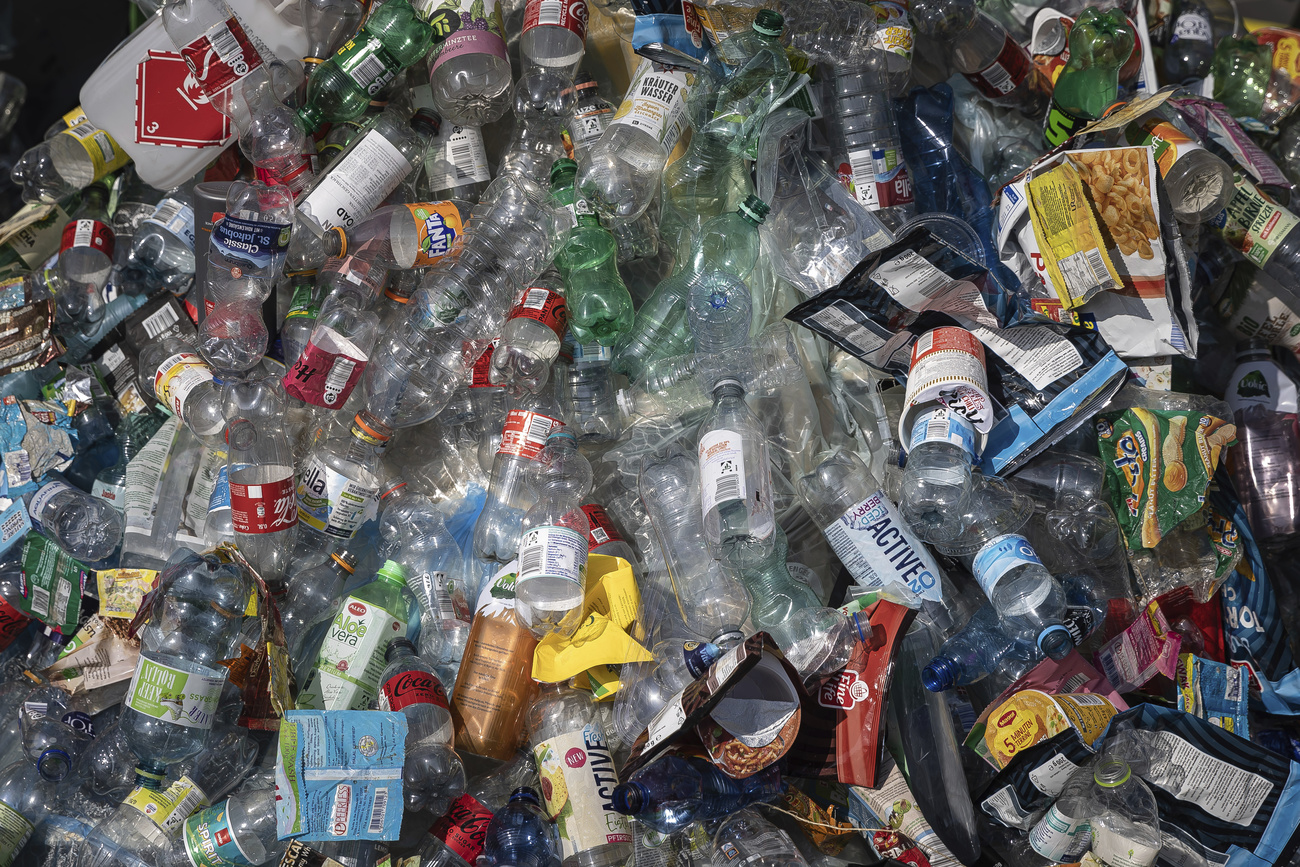
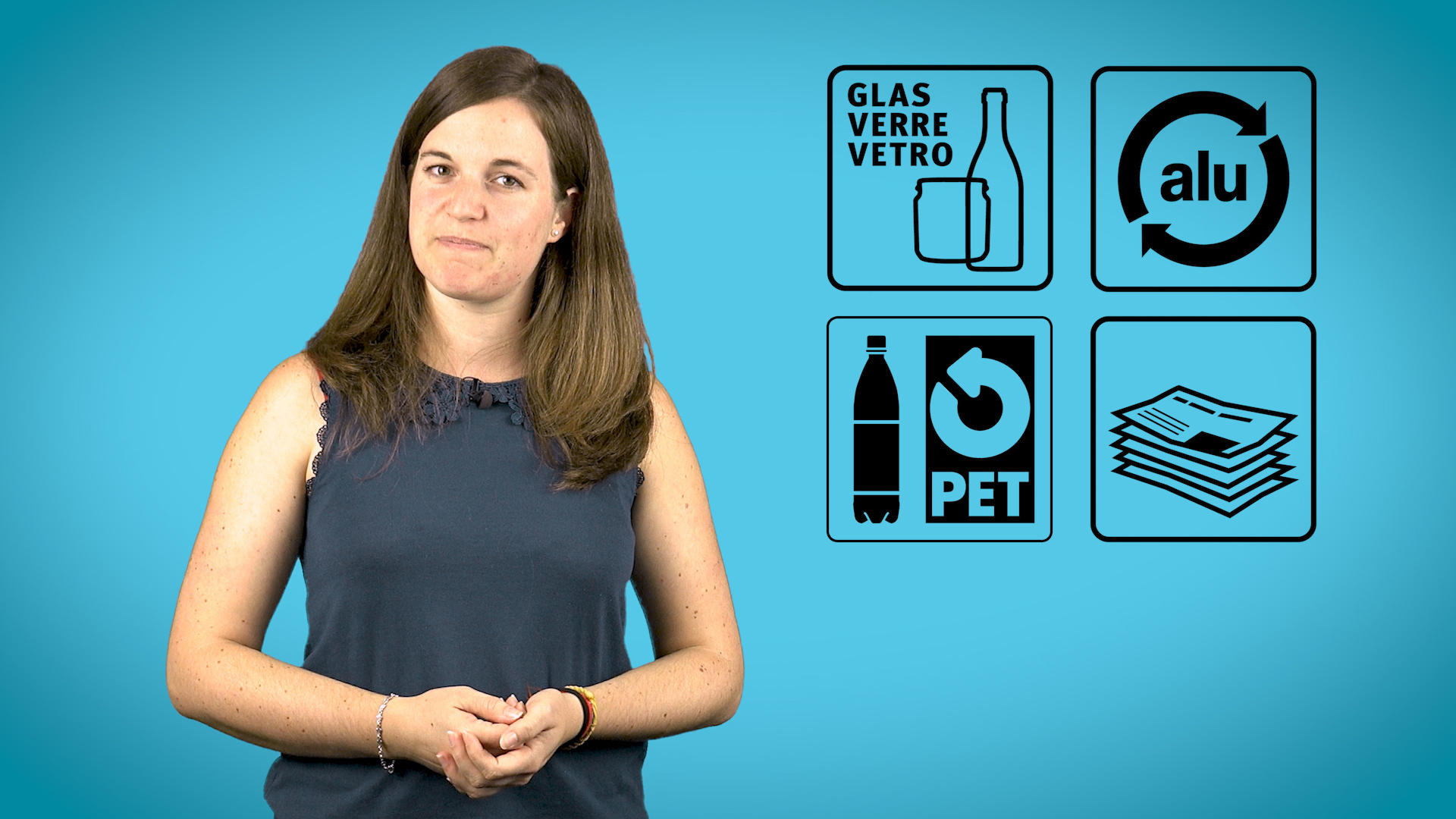
You can find an overview of ongoing debates with our journalists here . Please join us!
If you want to start a conversation about a topic raised in this article or want to report factual errors, email us at english@swissinfo.ch.